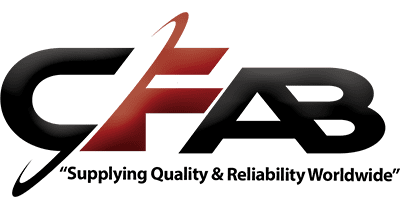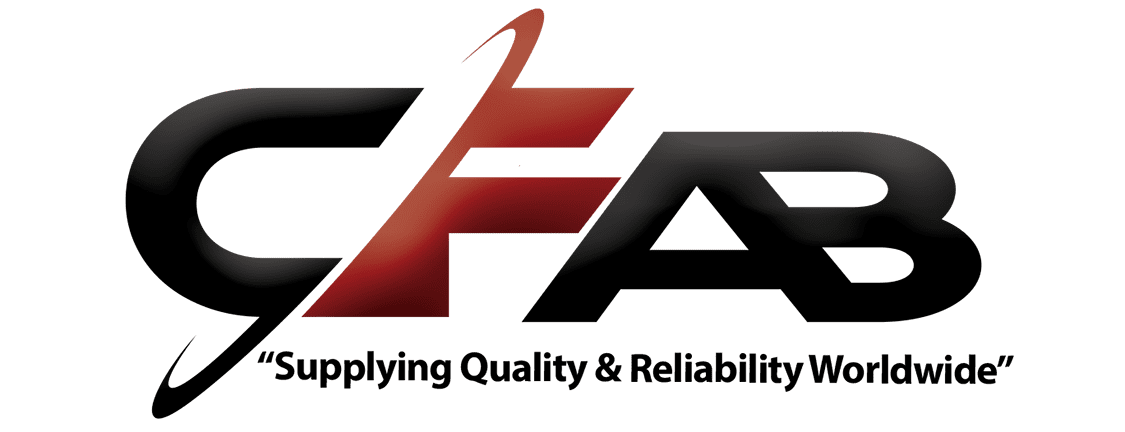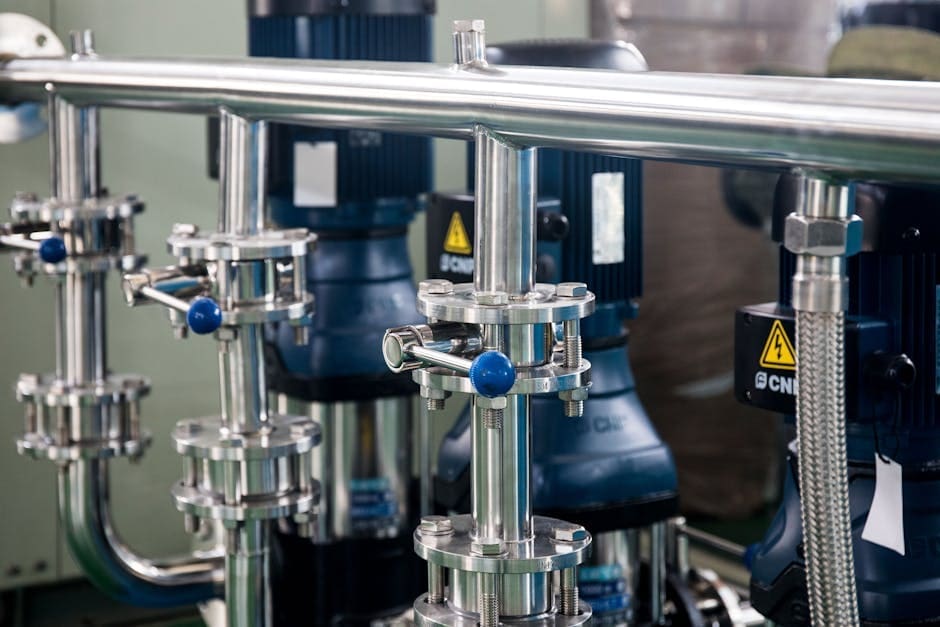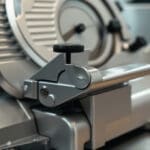Revolutionizing Industrial Cleaning with Automatic CIP Systems
An automatic cip system is changing the game in various industries by ensuring thorough, consistent, and efficient cleaning of processing equipment. These systems, designed to clean in place (CIP), are crucial for maintaining high hygiene standards, minimizing downtime, and preventing contamination in sectors such as food and beverage, pharmaceuticals, and more.
If you want a quick answer:
- Efficient Cleaning: Automatic CIP systems provide routine, reliable cleaning without manual intervention.
- Hygiene Assurance: They help ensure all equipment meets stringent cleanliness standards.
- Cost Savings: Reduced labor and consistent cleaning cycles result in operational savings.
At CFAB Global, we understand the critical role that automatic CIP systems play in these industries. A sound cleaning system can safeguard product quality, comply with hygiene regulations, and boost operational efficiency. Our innovative CIP solutions, in collaboration with leading brands such as BE Machinery, Graco, and Texas Refinery Corp, are custom to meet these demanding requirements.
My name is Todd Cleppe, CEO & Co-Founder at CFAB Global. With over 25 years of experience in designing and improving machinery, I’ve seen how implementing an automatic cip system can streamline operations, reduce costs, and ensure the highest hygiene standards.

An automatic CIP system (Clean-in-Place) is a highly efficient and automated cleaning solution designed to clean processing equipment without the need for disassembly. These systems are vital for industries like food processing, beverages, and pharmaceuticals, where hygiene and cleanliness are paramount.
Key Components of an Automatic CIP System
An automatic CIP system consists of several key components:
- Tanks: These hold cleaning solutions such as water, detergents, and sanitizers. Systems usually have multiple tanks for different cleaning stages.
- Pumps: These move the cleaning solutions through the system, ensuring thorough cleaning of all equipment surfaces.
- Valves: These control the flow of cleaning solutions, directing them to the appropriate parts of the system.
- Sensors: These monitor parameters like temperature, pressure, and chemical concentration to ensure optimal cleaning.
- Control Systems: Typically managed by a Programmable Logic Controller (PLC), these systems automate the cleaning process, ensuring consistency and efficiency.
How Does an Automatic CIP System Work?
The cleaning process in an automatic CIP system involves several stages:
- Prewash Cycle: Initial rinse to remove loose debris.
- Lye Cycle: An alkaline cleaning solution removes fats and proteins.
- Intermediate Rinse: A water rinse to remove alkaline residues.
- Acid Cycle: An acidic solution breaks down mineral deposits.
- Final Rinse: A final water rinse to ensure all cleaning agents are removed.
- Sterilization Cycle: This can involve hot water, steam, or chemical sanitizers to ensure the equipment is free of microorganisms.

Benefits of Automatic CIP Systems
Automatic CIP systems offer numerous benefits:
- Efficiency: Automated systems reduce the time needed for cleaning, allowing more production time.
- Consistency: Automated controls ensure each cleaning cycle is performed to the same high standard every time.
- Cost Savings: Reduced manual labor and optimized use of water and chemicals result in significant cost savings.
- Improved Safety: Automated systems reduce the risk of human error and exposure to cleaning chemicals.
Automation and Control
Modern CIP systems use advanced automation and control mechanisms. PLCs manage the entire cleaning process, adjusting pump speeds, chemical concentrations, and temperatures to ensure optimal cleaning. Sensors provide real-time data, allowing operators to monitor and adjust the process as needed.
Mobility and Compact Design
Many automatic CIP systems are designed to be mobile and compact, making them ideal for facilities with limited space. These portable systems can be easily moved and deployed where needed, providing flexibility and convenience.
Customization and Reporting
Automatic CIP systems can be customized to meet specific cleaning requirements. Operators can program different cleaning cycles and parameters, ensuring the system meets the unique needs of their facility. Additionally, automated reporting features provide detailed documentation of each cleaning cycle, aiding in compliance with hygiene regulations.
By integrating these advanced features, automatic CIP systems revolutionize industrial cleaning, ensuring high standards of hygiene and operational efficiency. For food processing solutions, consider BE Machinery’s process systems, which offer state-of-the-art CIP systems tailored to your needs.
Next, we’ll explore the benefits of automatic CIP systems in detail, focusing on how they improve food safety, reduce costs, and improve productivity.
Benefits of Automatic CIP Systems
Automatic CIP systems offer a myriad of benefits, particularly in industries where cleanliness and hygiene are crucial. Let’s dig into how these systems improve food safety, reduce costs, and improve overall efficiency.
Improved Food Safety
Contamination prevention is one of the primary advantages of using an automatic CIP system. By automating the cleaning process, these systems ensure that every part of the equipment is thoroughly cleaned and sanitized, reducing the risk of contamination from allergens, bacteria, and other hazards.
For instance, in food processing, it’s critical to prevent cross-contamination, such as gluten-free products coming into contact with gluten. Automated CIP systems provide consistent and reproducible cleaning, which is essential for maintaining high food safety standards.
Moreover, compliance with regulations is made easier with automated systems. They are designed to meet stringent hygiene standards, ensuring that your facility adheres to industry regulations like HACCP and GMP. Beth-El Machinery Ltd. offers CIP units that are built to EHEDG standards, ensuring that your cleaning processes meet the highest hygiene requirements.
Cost and Resource Efficiency
Automatic CIP systems significantly reduce labor costs. Since the cleaning process is automated, there is less need for manual intervention. This frees up your workforce to focus on other critical tasks, increasing overall productivity.
Water and chemical savings are another key benefit. Automated systems optimize the use of water and cleaning agents, ensuring that only the necessary amounts are used. This not only reduces waste but also lowers operational costs. For example, Graco and Kecol provide pumping solutions that improve the efficiency of CIP systems, ensuring minimal waste of cleaning agents.
Increased production time is a direct result of the efficiency of automatic CIP systems. Traditional cleaning methods can be time-consuming, often requiring equipment to be taken offline for extended periods. Automated systems, however, complete cleaning cycles faster, allowing for more production time and thereby boosting your bottom line.
Improved safety is another critical advantage. Manual cleaning often involves handling hazardous chemicals, which poses risks to workers. Automated systems reduce these risks by minimizing human contact with cleaning agents, enhancing workplace safety.
Consistent Cleaning and Compliance
One of the standout features of automatic CIP systems is their ability to provide consistent cleaning. Automated controls ensure that each cleaning cycle is performed to the same high standard every time, eliminating the inconsistencies associated with manual cleaning. This consistency is crucial for maintaining product quality and safety.
Compliance with hygiene regulations is also simplified with automatic CIP systems. These systems come with automated reporting features that document each cleaning cycle, including parameters like temperature, detergent concentration, and cycle duration. This detailed documentation is invaluable for audits and certifications, ensuring that your facility remains compliant with industry standards.
In summary, automatic CIP systems revolutionize industrial cleaning by improving food safety, reducing costs, and enhancing overall efficiency. They offer a reliable and consistent cleaning process that meets stringent hygiene standards, making them an indispensable asset in industries like food processing, pharmaceuticals, and more.
Next, we’ll explore the various applications of automatic CIP systems and how they can be custom to meet the specific needs of different industries.
Applications of Automatic CIP Systems
Automatic CIP systems are game-changers across various industries, ensuring hygiene, efficiency, and compliance. Let’s explore their applications and benefits in different sectors.
Food Processing Solutions
In the food processing industry, maintaining high hygiene standards is non-negotiable. Beth-El Machinery Ltd. offers top-notch automatic CIP systems that ensure thorough cleaning of processing equipment. These systems prevent contamination and are essential for producing safe, high-quality food products.
Example: In a dairy plant, an automatic CIP system can clean tanks, pipes, and pasteurizers without disassembly, ensuring that every surface is free from bacteria and residue. This not only keeps the products safe but also ensures compliance with regulations such as HACCP and GMP.
Pumping Solutions and Automated Lubrication Systems
Efficient pumping and lubrication are vital for the smooth operation of CIP systems. Graco and Kecol provide advanced pumping solutions that improve the efficiency of CIP processes. These systems ensure that cleaning agents are delivered at the right pressure and flow rate, optimizing the cleaning process.
Example: In a brewery, efficient pumps are crucial for circulating cleaning solutions through fermentation tanks and pipelines. Automated lubrication systems from Graco and Kecol also ensure that the moving parts of the CIP system run smoothly, reducing maintenance needs and downtime.
Lubricants for CIP Systems
Using high-quality lubricants is essential for the longevity and performance of CIP systems. Texas Refinery Corp offers specialized greases and oils that ensure the machinery operates efficiently and lasts longer.
Example: In a pharmaceutical plant, using Texas Refinery Corp lubricants in the CIP system’s pumps and valves can prevent wear and tear, ensuring that the system remains reliable and efficient over time.
Beverage Industry
In the beverage industry, automatic CIP systems are indispensable for maintaining product quality and safety. These systems ensure that bottling lines, mixers, and storage tanks are thoroughly cleaned, preventing contamination and ensuring compliance with industry standards.
Example: A soft drink manufacturer can use an automatic CIP system to clean filling machines and pipelines, ensuring that no residues or contaminants affect the taste or safety of the final product.
Pharmaceuticals
The pharmaceutical industry demands the highest levels of cleanliness and hygiene. Automatic CIP systems ensure that reactors, mixers, and storage tanks are free from contaminants, meeting stringent regulatory requirements.
Example: In a pharmaceutical plant, an automatic CIP system can clean bioreactors and fermenters, ensuring that no cross-contamination occurs between different batches of products.
Dairy
In the dairy industry, maintaining hygiene is crucial for product safety and quality. Automatic CIP systems ensure that pasteurizers, tanks, and pipelines are cleaned thoroughly, preventing bacterial growth and contamination.
Example: A cheese manufacturer can use an automatic CIP system to clean vats and pipelines, ensuring that the final product is free from harmful bacteria and meets safety standards.
Breweries
Breweries require consistent and thorough cleaning of their equipment to maintain the quality and taste of their beer. Automatic CIP systems ensure that fermenters, bright tanks, and pipelines are cleaned efficiently and effectively.
Example: A craft brewery can use an automatic CIP system to clean its fermentation tanks and kegs, ensuring that each batch of beer is of the highest quality and free from contaminants.
Automatic CIP systems are versatile and can be custom to meet the specific needs of various industries. They provide consistent, efficient, and reliable cleaning, making them an essential asset for maintaining hygiene and compliance.
Next, we’ll dig into the features of modern automatic CIP systems, including automation, mobility, and customization.
Features of Modern Automatic CIP Systems
Automation and Control
Modern automatic CIP systems are equipped with advanced automation features that make cleaning processes more efficient and reliable. Programmable Logic Controllers (PLCs) and Human Machine Interfaces (HMIs) are integral components.
PLCs control the entire cleaning process, including pump speeds, chemical concentrations, and temperatures. This ensures that each cleaning cycle is consistent and meets the required standards. If any parameter is not met, the system can alert operators to take corrective actions.
HMIs provide a user-friendly interface for operators to monitor and control the CIP system. With a simple touch, operators can start or stop cycles, adjust settings, and view real-time data. This makes day-to-day operations straightforward and efficient.
Additionally, sensors play a crucial role in automation. They monitor various parameters like flow, temperature, and chemical conductivity, ensuring that the cleaning process is always optimal.
Mobility and Compact Design
One of the standout features of modern automatic CIP systems is their mobility and compact design. These systems are often built on skid frames with wheels, making them easy to move around different locations within a facility.
- Portable systems: The mobility of these systems allows them to be used in multiple areas, making them versatile and cost-effective.
- Space-saving: Their compact design means they can be deployed in tight spaces where larger units wouldn’t fit. This is particularly beneficial for smaller plants or facilities with limited space.
- Easy deployment: The systems are designed for quick setup and operation, reducing downtime and increasing productivity.
Customization and Reporting
Modern automatic CIP systems offer a high degree of customization to meet specific cleaning requirements. Operators can set up custom cleaning programs custom to the unique needs of their facility.
- Custom cleaning programs: These programs can be adjusted for different cleaning cycles, including pre-rinse, lye cycle, acid cycle, and final rinse. Each cycle can be fine-tuned for temperature, chemical concentration, and duration.
- Automated reporting: The systems come with automated reporting features that log all cleaning activities. This includes data on flow rates, temperatures, and chemical concentrations.
- Compliance documentation: The ability to record and store cleaning data ensures compliance with industry regulations. Reports can be easily generated for audits and inspections.
Example: In a food processing plant, the ability to customize cleaning programs ensures that each piece of equipment receives the appropriate cleaning treatment, reducing the risk of contamination and ensuring product quality. For advanced food processing solutions, consider BE Machinery’s process systems.

These features make modern automatic CIP systems an invaluable asset for various industries, ensuring efficient, reliable, and compliant cleaning processes.
Next, we’ll address some frequently asked questions about automatic CIP systems, such as their definition, how they differ from COP systems, and how they improve food safety.
Frequently Asked Questions about Automatic CIP Systems
What is auto CIP?
Auto CIP (Clean-In-Place) is an automated system designed to clean the interior surfaces of pipes, vessels, equipment, and associated fittings without disassembly. This technology is crucial in industries like food processing, pharmaceuticals, and dairy where hygiene is paramount.
The process involves several cleaning cycles:
- Pre-Rinse: Removes loose debris.
- Lye Cycle: Breaks down fats and more resistant residues.
- Acid Cycle: Cleans calcium and other build-ups.
- Final Rinse: Ensures all cleaning agents are removed.
- Sterilization Cycle: Uses chemicals, hot water, or steam to kill any remaining bacteria.
What is the difference between CIP and COP systems?
CIP (Clean-In-Place) and COP (Clean-Out-of-Place) systems are both used for cleaning equipment, but they have distinct differences:
-
CIP Systems: Clean equipment without the need for disassembly. They are ideal for cleaning complex machinery like tanks, pipelines, and reactors. CIP systems are automated, ensuring consistent and thorough cleaning.
-
COP Systems: Require the equipment to be disassembled before cleaning. This method is often used for smaller parts like valves, gaskets, and hoses. COP systems are manual, making them labor-intensive and less consistent.
Applications:
- CIP Systems: Used in industries where hygiene and contamination prevention are critical, such as food processing and pharmaceuticals.
- COP Systems: Suitable for industries where equipment can be easily disassembled and manually cleaned.
How does an automatic CIP system improve food safety?
Automatic CIP systems significantly improve food safety by ensuring consistent and thorough cleaning, which is critical for preventing contamination.
- Consistent Cleaning: Automated systems follow precise cleaning cycles and parameters, eliminating human error. This ensures that every cleaning cycle meets the required standards.
- Contamination Prevention: By thoroughly cleaning and sanitizing equipment, CIP systems reduce the risk of cross-contamination. For example, in a facility processing both gluten-free and regular products, a CIP system ensures no gluten residue remains.
- Compliance: Automatic CIP systems help facilities comply with stringent industry regulations. The automated reporting features log all cleaning activities, making it easy to generate compliance documentation for audits and inspections.
Example: According to BE Machinery, their CIP systems are designed to meet high hygienic standards, ensuring that food processing plants produce safe, contamination-free products.
These FAQs should help you understand the basics of automatic CIP systems and their importance in maintaining high standards of cleanliness and safety in various industries.
Conclusion
Automatic CIP systems are revolutionizing industrial cleaning by providing consistent, efficient, and reliable cleaning processes. These systems are critical in industries like food processing, pharmaceuticals, and dairy, where maintaining hygiene is paramount. For top-notch food processing solutions, we recommend exploring BE Machinery solutions.
CFAB Global: Your Partner in Machinery Solutions
At CFAB Global, we specialize in delivering advanced machinery solutions custom to meet the unique needs of various industries, including manufacturing, construction, agriculture, and energy. Our expertise extends to providing top-tier services and equipment that improve operational efficiency.
The Machine Reliability Program
Central to our offerings is our Machine Reliability Program, a comprehensive solution designed to boost the performance, reliability, and lifespan of your critical machinery components. We provide personalized analysis, cutting-edge services, high-quality equipment, and ongoing support to help your business achieve maximum productivity, reduce costly downtime, and ensure the longevity of your machinery.
Industries Served
We have a proven track record of working with a diverse range of industries:
- Manufacturing: Streamlining production processes and enhancing machinery performance.
- Construction: Reducing equipment failure and ensuring seamless project completion.
- Agriculture: Boosting the efficiency of agricultural machinery and extending its operational life.
- Energy: Offering specialized support to keep energy sector machinery running smoothly, reducing potential downtime.
Why Choose CFAB Global?
- Expertise: Our team of specialists is dedicated to providing the highest level of support.
- Customized Solutions: We tailor our Machine Reliability Program to address your specific machinery needs and challenges.
- Proactive Maintenance: We focus on predictive maintenance strategies that prevent breakdowns before they occur.
- Increased ROI: By reducing downtime and extending machinery lifespan, we help your business maximize its return on investment.
For reliable machinery solutions that drive productivity and efficiency, CFAB Global is your go-to partner.
Explore more about our services and how we can help your business achieve its full potential by visiting our Automatic Greaser page.
Feel free to reach out to us for more information or to get a free quote. We’re always here to help you improve your machinery operations and ensure your success.
